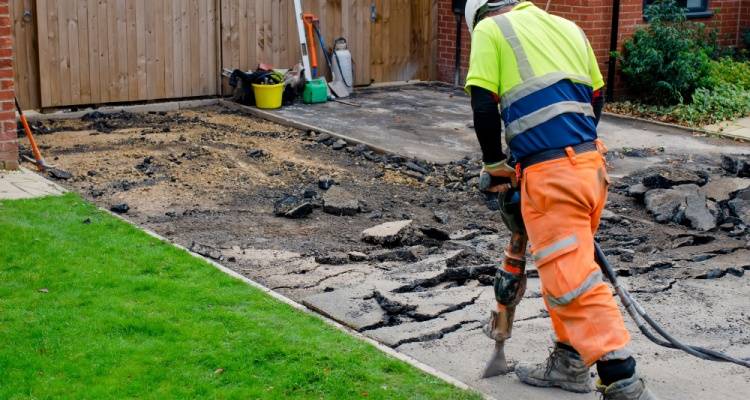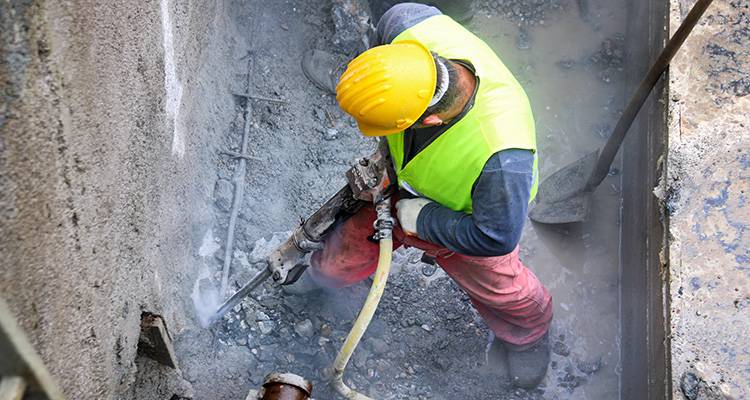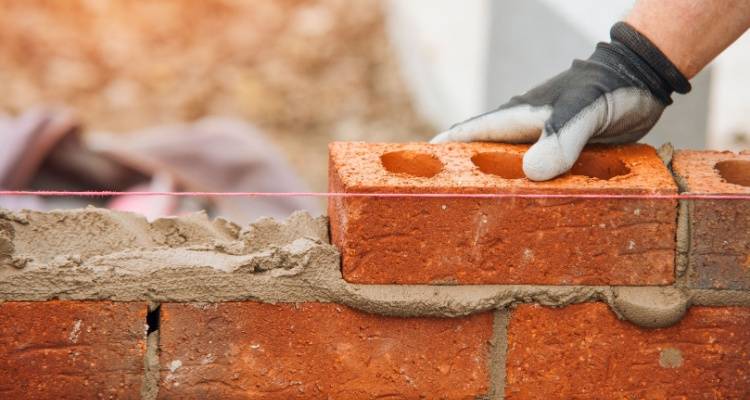What Time Can Builders Start Work?
Being woken up to the sound of loud machinery at the weekend isn’t ever welcome, but what does the law say about the time construction can take place?
Non-compliance with legal working hours can lead to fines and prosecution, as well as equipment being seized by local authorities for repeat noise offenders.

While these regulations pertain to commercial and industrial activities, there are still guidelines for DIY activities. These are more lenient than the former activities, but consequences can still follow for activities that have the potential to create noise disturbances, especially if they’re repeatedly carried out during unsocial hours.
Whether you’re a commercial business wanting to be clued up on noise laws, or a DIY enthusiast wanting to be mindful of local guidelines, we’ll have the answers for you.
Let’s get started!
Table of Contents
What Time Can Building Work Start?
This can be answered by looking at The Control of Pollution Act 1974. This is a significant piece of legislation that regulates different forms of pollution — water, air, noise, and waste management — in the UK. The Act helps to regulate these forms of pollution to protect the environment.

This legislation states that “noisy work”, which refers to activities where the sound produced could be disruptive or disturbing, such as drilling, the use of heavy machinery, and demolition, can only be conducted between 8 a.m. to 6 p.m. Monday to Friday, and 8 a.m. to 1 p.m. on Saturday.
National Guidelines
The national guidelines for noisy work are as follows:
- Monday to Friday - 8 a.m. to 6 p.m.
- Saturday - 8 a.m. to 1 p.m.
- Sunday - Prohibited
- Bank Holidays - Prohibited
Weekday rules state that builders should avoid all noisy work outside of 8 a.m. to 6 p.m., while weekend work is more tightly guarded. Saturday’s hours are cut to 8 a.m. to 1 p.m., and noisy work on Sundays or Bank Holidays is prohibited.
| Day | Permitted noisy work hours |
|---|---|
| Monday to Friday | 8 a.m. to 6 p.m. |
| Saturday | 8 a.m. to 1 p.m. |
| Sunday | Prohibited |
| Bank Holidays | Prohibited |
The night hours — between 11 p.m. and 7 a.m. — are outlined in the Noise Act 1996 as the time when noise cannot exceed 34dBA. Operating heavy machinery during these hours will result in the council intervening and action being taken.
With this being said, there are also local variations to these general guidelines, which carry different regulations.
Local Variations
Local variations introduce some subtle differences to noisy work guidelines.
You can find the local guidelines for your area by searching for your council website and “what time can tradesmen start work” and “noisy work hours” online.
Here’s a snapshot of some areas across the UK:
Warwick District Council
- Monday to Friday - 7:30 a.m. to 5 p.m.
Building work is inherently noisy, but workers are advised to limit the noisiest work to these hours only. Although builders can be on site outside of these hours, work that is considered excessively noisy must not occur outside of these boundaries.
West Northamptonshire Council
- Monday to Friday - 7:30 a.m. to 6 p.m.
Developers must demonstrate that they are attempting to keep noise pollution to a minimum while working. If the work needs to be carried out outside of these times and can be demonstrated as such, the council can arrange it if they agree to the requirement.
Belfast City Council
- Monday to Friday - 7 a.m. to 7 p.m.
Residents are advised to speak to their neighbours before work begins to help mitigate any disturbances and to carry out the noisiest work at “reasonable” times, as listed above.
Birmingham City Council
- Monday to Friday - 8 a.m. to 6 p.m.
Birmingham City Council states they will impose requirements to any noisy work that is being found to be carried out outside of these hours, and can even do so before any work has started to help mitigate potential disturbances.
Cheltenham Borough Council
- Monday to Friday - 7:30 a.m. to 6 p.m.
Commercial builders must be able to demonstrate they are applying “best practicable means” to keep their noise to a minimum, even during permitted noisy working hours.
Compliance & Penalties
If you find tradespeople are working noisily outside of your area’s permitted hours, the first step is to talk to them to see if you can come to a resolution. Where this isn’t possible, you can move on to complain to your local council who will handle the matter for you.

This will trigger them to serve a notice on the workers, explaining how to proceed with work within guidelines. In cases where this advice is ignored, a statutory noise complaint will then be given, carrying a fine of up to £20,000 in England, Wales, and Northern Ireland.
What Is Considered Unreasonable Noise?
So, what is classed as unreasonable noise from neighbours?

The following tools are considered to be disruptive to residents and local businesses when in use:
- Jackhammers/pneumatic drills
- Excavators
- Angle grinders
- Electric saws
- Compactors/rollers
If construction workers use these tools outside of the permitted noisy work times, local residents could complain. However, builders can turn up to building sites outside of these hours and can carry out quieter work.
These quieter tasks generally include indoor activities, such as:
- Painting/decorating/finishing work
- Installing fixtures/fittings
- Surveying
- Inspection/quality control
- Site clean up
- Administrative work
It’s important to note that noise can travel differently depending on the area, and contextual factors can influence decisions, so “permitted” tasks will vary from place to place.
For example, noisy work in a bustling commercial area might not be as noticeable as it might be in a quiet, rural residential setting.
What Tradespeople Does This Impact?
Some trades are inherently noisier than others — landscapers will probably be louder than painters and decorators, for example — but the rules regarding noisy working hours apply to all trades.

This means that all trades — builders, electricians, roofers, plumbers, landscapers, window fitters, etc. — must adhere to the permitted hours for the specific location they’re working in.
The rules for DIY work are not as stringent as they are for commercial builders, but you should still adhere to the permitted noisy work periods to avoid upsetting your neighbours. If the issue remains unresolved, your neighbours can contact the council, which can lead to an abatement notice — if ignored, this can lead to legal action and fines.
Summary
So, what time can building work start? If it’s considered noisy work, the general times will be 8 a.m. to 6 p.m. Monday to Friday.
Here’s a round-up of everything you need to know:
- The Control of Pollution Act 1974 sets out rules to regulate different forms of pollution — water, air, noise, and waste management — in the UK.
- Noisy work is generally permitted between 8 a.m. to 6 p.m. Monday to Friday; 8 a.m. to 1 p.m. on Saturday; and not at all on Sundays or Bank Holidays.
- Local variations to these rules exist, and you should check your local council’s rulings before carrying out any loud work at your property.
- Failure to follow the guidelines can lead to legal action, including seizure of equipment, notice being served, and fines of up to £20,000 in England, Wales, and Northern Ireland.
- DIY rules are more lenient, but you should still follow the guidelines to avoid disrupting your neighbours during quiet times
It’s important to check your local council’s rules before any work begins on your property, as failure to comply with the permitted times can lead to legal action and large fines.
FAQs
Are There Exceptions to Permitted Work Hours for Emergency Work?
However, the contractor’s duty is always to ensure that their work minimises the impact on local residents and businesses.
Can You Request Changes to Permitted Work Hours for a Construction Project?
Can You Do Building Work on a Sunday?
As mentioned, DIY rulings are more lenient, but residents should always be mindful of their neighbours and inform them if noisy work is due to be carried out to mitigate the disturbance it causes.
What Is Classed as Unreasonable Noise From Neighbours?
Sources
https://www.legislation.gov.uk/ukpga/1974/40
https://www.warwickdc.gov.uk/info/20109/crime_and_law_enforcement/109/noise_complaints
https://www.westnorthants.gov.uk/environmental-health/noise-pollution
https://www.belfastcity.gov.uk/bins-and-environment/noise-control/other-types-of-noise#413-5
https://www.birmingham.gov.uk/info/20076/pollution/2310/construction_and_demolition_advice_to_building_contractors/3
https://www.cheltenham.gov.uk/info/66/environmental_protection_and_pollution/910/construction_and_building_sites








